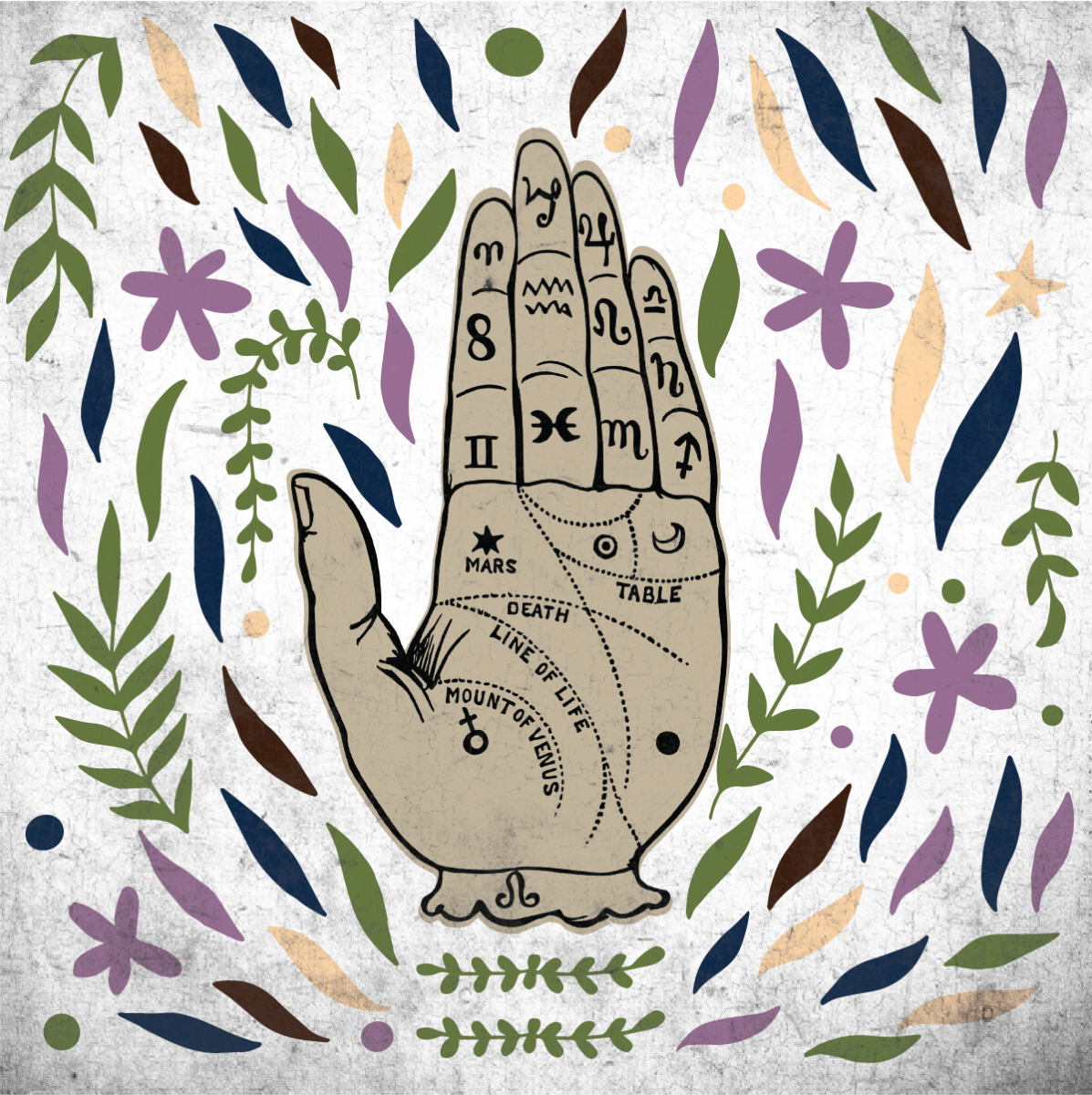It’s a brisk fall morning in Daniel Boone Park as vendors at the Watauga County Farmers’ Market prepare to sell their goods. Typical farmer’s market merchandise like fresh vegetables, gemstone jewelry and baked goods draw shoppers’ attention, along with some more uncommon market wares.
Sold within the rows of stands is medicine. Not ibuprofen or other over-the-counter drugs but teas, tinctures, salves and fungi. Medicine straight from Watauga’s backyard.
Southern Appalachia has a deep history of practicing alternative medicine. In recent decades, Appalachian folk medicine has been catapulted into the mainstream, gaining popular attention through a surge of books, articles and documentaries removing the shroud of “mountain conjure.” Referred to as granny magic, root work or folk healing, Appalachian folk medicine is simply medicine, no magic to it.
Medicine derived from local plants, fungi and herbs was first used by the indigenous populations in the region and was later adopted by European settlers. The combination of cultural practices over generations resulted in the manifestation of Appalachian folk medicine we know of today. The centuries-old practice has largely remained a quiet tradition, passed from mother to daughter throughout the generations.
Senior Lyra Marlow reflected on her relationship with the folk medicine tradition. Born and raised in Rutherford County, Marlow’s great-grandmother practiced Appalachian home remedies.
“My family didn’t really call it folk medicine. It was, like, ‘Go buy elderberry syrup and drink that and your cough would go away,” Marlow said. “It was just what people did.”
Marlow, an anthropology major, said she didn’t understand it as a practice until she was older and could research on her own.
“It’s the kind of thing that’s ingrained in you in a way that you don’t understand until you start being told by people who have degrees that this is a folk way or a traditional way of doing things,” Marlow said. But for her it’s “just life.”
As modern healthcare became more common and accessible in the region in the ‘70s and ‘80s, folk remedies were no longer relied on as primary care, Marlow said. Her great-grandmother passed down her knowledge of folk medicine in the family, but the tradition fell by the wayside.
“Now we’re circling back to ‘Healthcare is inaccessible, healthcare is expensive’ and we’re having to return to those things and I just think it’s important for me to relearn,” Marlow said.
Throughout studying Appalachian culture, Marlow came to recognize her great-grandmother as a practitioner of folk medicine.
“When I was an older teenager I became an Appalachian studies minor and I started reading and I realized ‘Oh that’s what she was, that’s what she did,’” Marlow said. “She definitely wouldn’t consider herself a witch or a practitioner or any of those things, she just had knowledge of the area and the plants that grew there.”
Appalachian folk medicine can be a misunderstood tradition with some condescendingly referring to it as “hillbilly hoodoo,” Marlow said.
“I think that there’s some sort of air of mystery around any time we talk about folk medicine or magic. We think that it’s something you can’t talk about, it’s scary, it’s underground. But it’s just common sense knowledge of the land.”
Science also supports many of the remedies used in mountain medicine. Elderberry has been a long-used remedy for colds, and it has been proven to reduce the length and severity of viruses. Ginseng can help build immunity and regulate blood sugar. Yarrow is commonly used to soothe indigestion, but can also be used for menstrual pain and a laundry list of other uses.
But plants are not the only medicine growing from Appalachian soil. Mushrooms are one of the most prolific medicinal organisms in the region and have been incorporated into folk, alternative and established medicine in a variety of ways.
Avery Hughes, owner of local business High Country Fungi, said Appalachia has a cache of fungi diversity and assemblage of medicinal mushrooms.
“Appalachia in general has over 20,000 species of fungi, which only 2,300 have been identified. Especially the southern region of Appalachia, which we are in, has the highest diversity,” Hughes said.
Because folk medicine is commonly passed down as an oral tradition, Hughes said there are “fragmented cultural uses” of mushrooms in the region. A recorded example of mushroom medicine is the use of puffball mushrooms by indigenous groups as a coagulant. Mixing the spores of the mushroom with spider webs and bark created an antibacterial combination used for wound and burn care.
Hughes was first introduced to the medicinal benefits of mushrooms when an herbalist prescribed him reishi for health benefits. Known to lower cholesterol, boost energy, regulate blood sugar and provide anti-tumor properties, reishi is one of the top sellers for High Country Fungi.
In addition to reishi, lion’s mane also greatly influenced Hughes’ wellbeing. The number one selling mushroom improves focus, memory and mental clarity. Early research suggests lion’s mane can prevent and alleviate symptoms of Alzheimer’s and dementia, Hughes said.
Hughes experienced significant benefits from taking mushrooms as medicinal supplements and saw that others were also interested in using mushrooms for their health benefits. Starting High Country Fungi was “something I could offer to my local community and kind of help educate them,” Hughes said.
Southern Appalachia is home to many easily foraged medicinal mushrooms like turkey tail, chaga, lion’s mane and reishi. Each provides a slew of benefits including anti-cancer properties, immune system regulation, energy boost and memory retention. The medicine can be consumed in a variety of ways including powders, extracts, teas or capsules, Hughes said.
The lion’s mane is the first to go at the High Country Fungi farmer’s market stand, indicating alternative medicine may not be all “hillbilly hoodoo” afterall.


